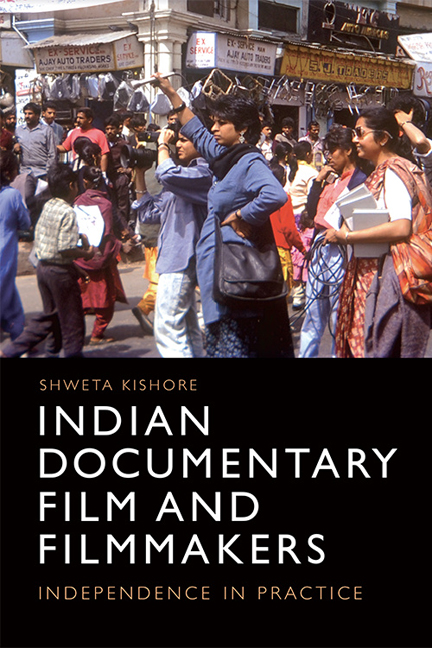3 - Financing and Production
Published online by Cambridge University Press: 24 April 2021
Summary
On 4 February 2014, the glamorous, celebrity-studded Good Pitch India arrived in downtown Mumbai. Jointly organised by the Indian Documentary Federation, founded by successful Bollywood film and television choreographer Javed Jaffrey in partnership with the Films Division of India, panelists at the event comprised sixty-eight corporate and civil society representatives, international documentary commissioning agents, film festival representatives and industry insiders from the international documentary community and Bollywood. With Bollywood film producer Kiran Rao as host, the event unfolded as a meticulously choreographed spectacle where each filmmaker used an allocated seven minutes to make a pitch for project funding and in-kind support to the pre-matched media, industry and civil society representatives. Smoothly rehearsed, the filmmakers called upon invited film protagonists to visibly amplify the emotional appeal of the pitch, the success of which rested upon a persuasive linkage between the project and the corporate social responsibility goals of participating organisations. Whilst highlighting these overlaps, filmmakers offered to take on board substantive editorial suggestions regarding certain lines of inquiry, choice of protagonists and storytelling techniques. Not surprisingly, a section of Indian filmmakers is deeply anxious about the strengthening correlation between financing and semiotics as international commissions and co-productions are fervently courted by middlemen and brokering institutions like IDF. While the global networks open up access to transnational institutional funding and circulation forums, veteran filmmakers like Anand Patwardhan take a political view and liken the position of the filmmaker to ‘performing monkeys’ in the service of a privileged Western spectator in these arrangements (cited in Korossi 2015). Pointing out semiotic issues, Jyotsna Kapur (2003) attributes the development of particular techniques such as the insertion of the Self within co-produced documentary narratives as a response to accommodate editorial pressure from abroad.
The nature of the relation between cultural producers, patrons and institutions fundamentally organises the creative remit and social relations of artists, mediated through the relative power and social authority of the commissioners or patrons of artefacts (Williams 1981: 38). Placing diverse levels of accountability upon artists with implications for autonomy, systems of patronage produce complex forms of social and institutional organisation and relations between artists, culture and society. This raises critical questions regarding artistic independence and the role and function of culture in society.
- Type
- Chapter
- Information
- Indian Documentary Film and FilmmakersIndependence in Practice, pp. 77 - 104Publisher: Edinburgh University PressPrint publication year: 2018



